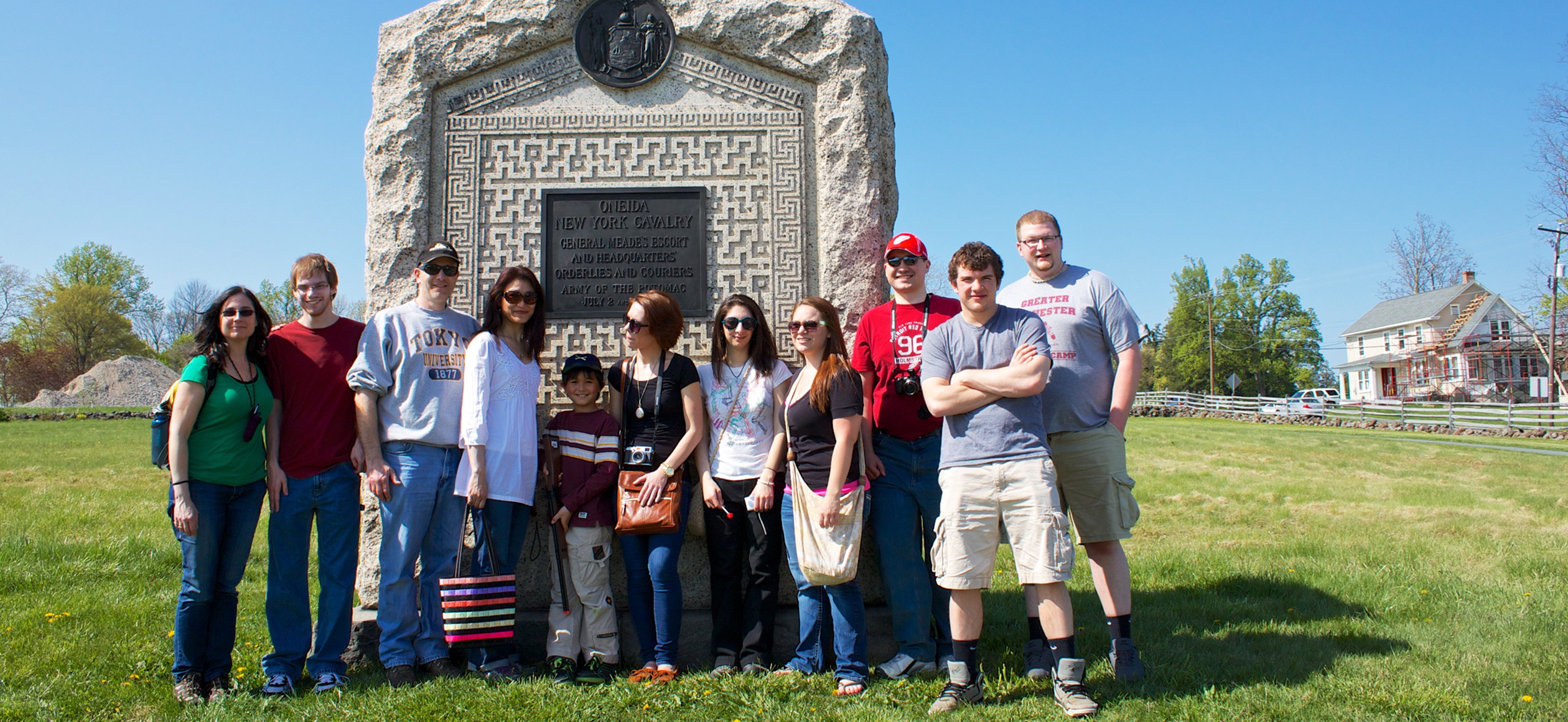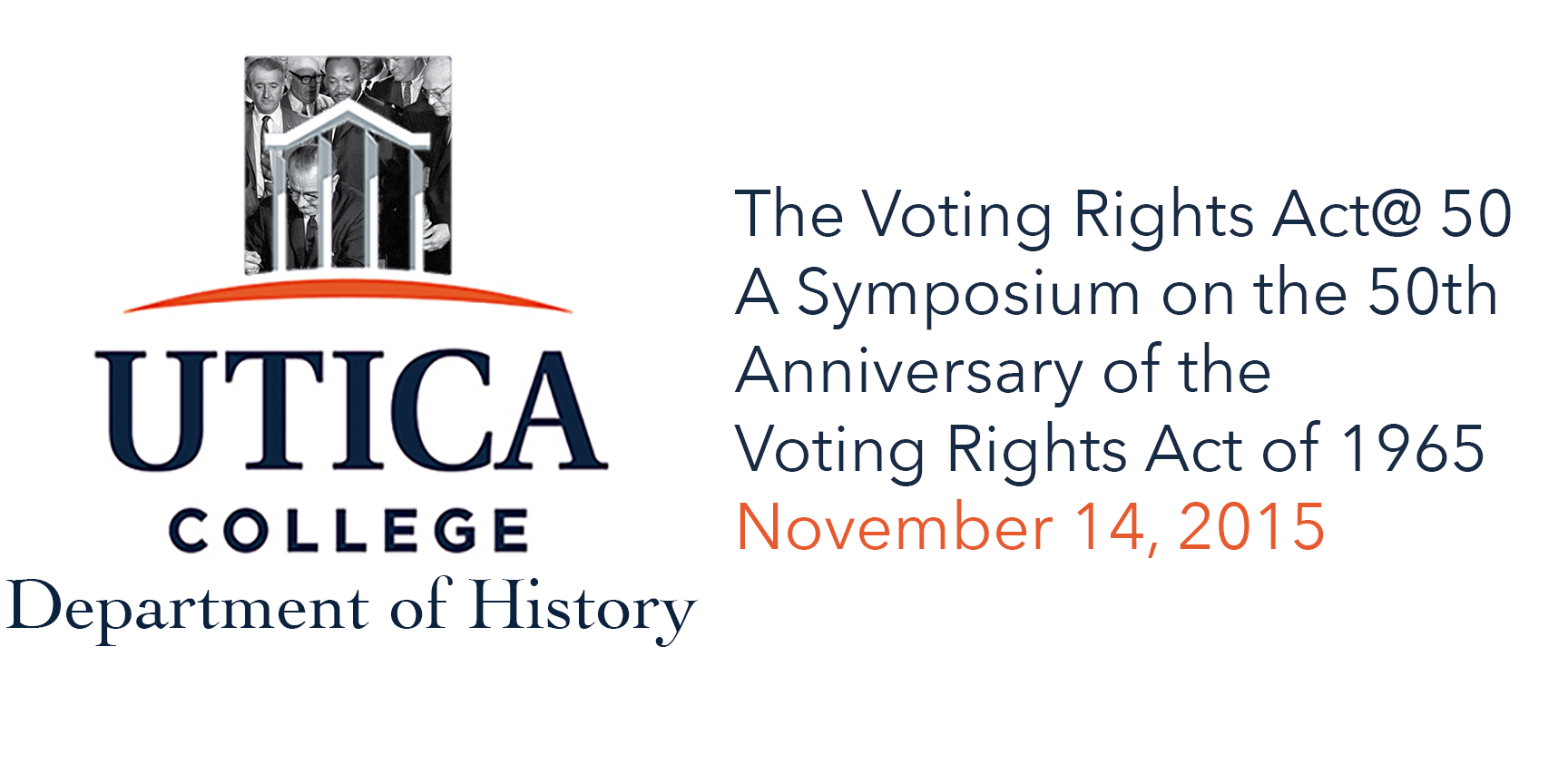
"I was beaten and jailed because I stood up for it," Congressman John L. Lewis wrote recently on his website. "The history of the right to vote in America is a history of conflict, of struggling for the right to vote. Many people died trying to protect that right."
Their resistance and sacrifice led to the Voting Rights Act of 1965, the culmination of the civil rights struggles of the preceding decade. The journey to vote met violent resistance from white supremacists and segregationists. In 1964, Freedom Summer, three students and civil rights workers, James Chaney, Andrew Goodman and Michael Schwerner were found murdered. Mississippi sharecropper and activist Fannie Lou Hamer, with the help of the Student Nonviolent Coordination Committee (SNCC), organized the Mississippi Freedom Democratic Party to push for African American participation in the electoral process. The act, signed into law by President Lyndon B. Johnson, followed the 1965 March from Selma to Montgomery, where John Lewis of SNCC and the Rev. Dr. Martin Luther King, Jr. endured the nightsticks and biting dogs of “Bloody Sunday.”
Fifty years later, the struggle for full voting participation goes on. "For millions like me," Congressman Lewis writes, "the struggle for the right to vote is not mere history; it is experience." As redistricting, new voter registration laws, and other measures are put into place, historians and civil rights activists continue to reflect on the struggles, impact, and legacy of the 1965 Voting Rights Act.
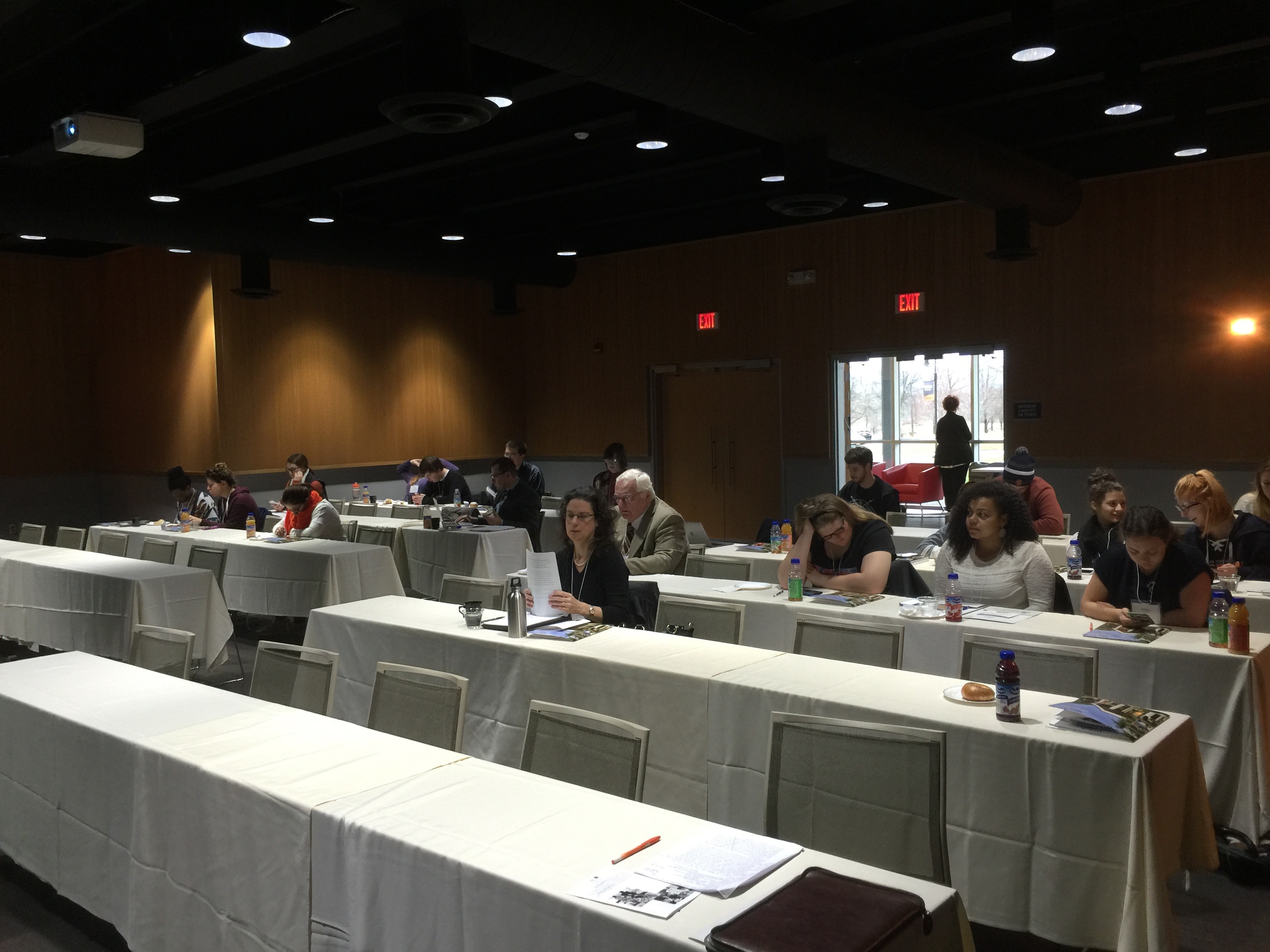
Attendees Assemble for the Voting Rights Symposium
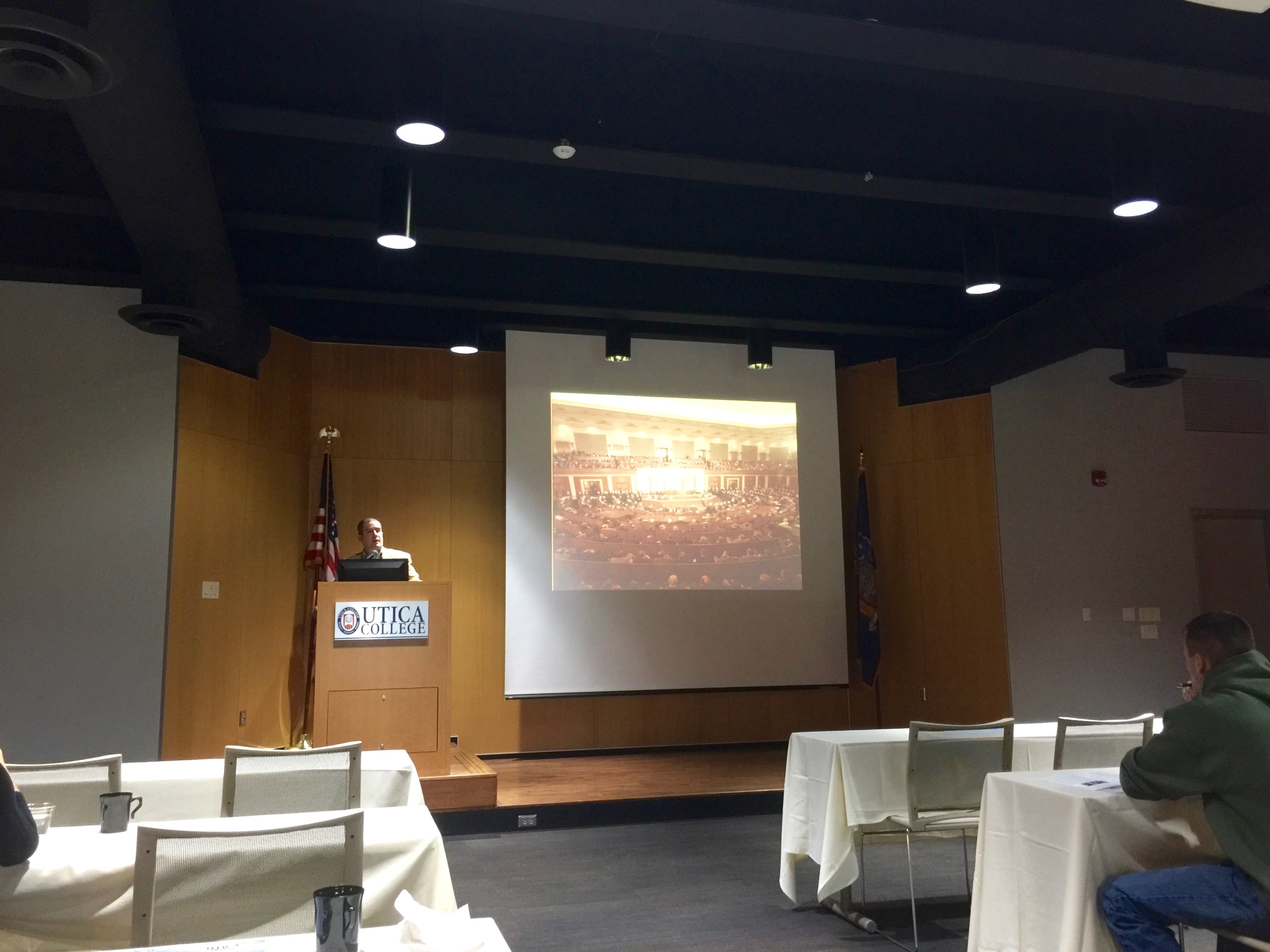
Christopher Hickman, PhD (Tarleton State University) presents his paper,
"Even Bad Ideas (Sometimes) Find Judicial Allies: Justice Hugo Black’s
Jurisprudential Deviations and the Opponents of the VRA of 1965”
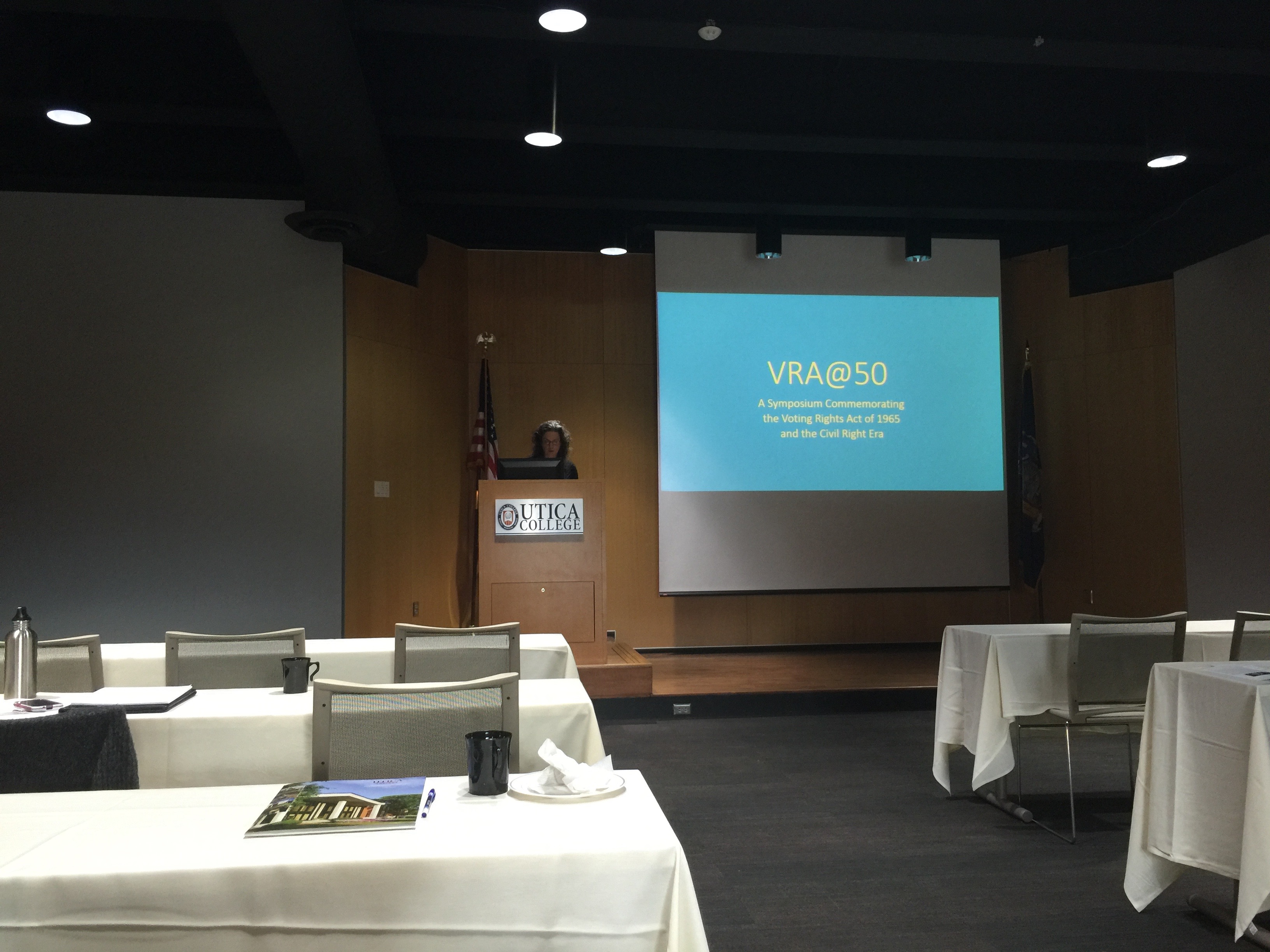
Victoria Wolcott, PhD (University at Buffalo) presents her research
on segregated recreational facilities in a paper titled:
“Voting with Their Feet: The Struggle Over Segregated Recreation”
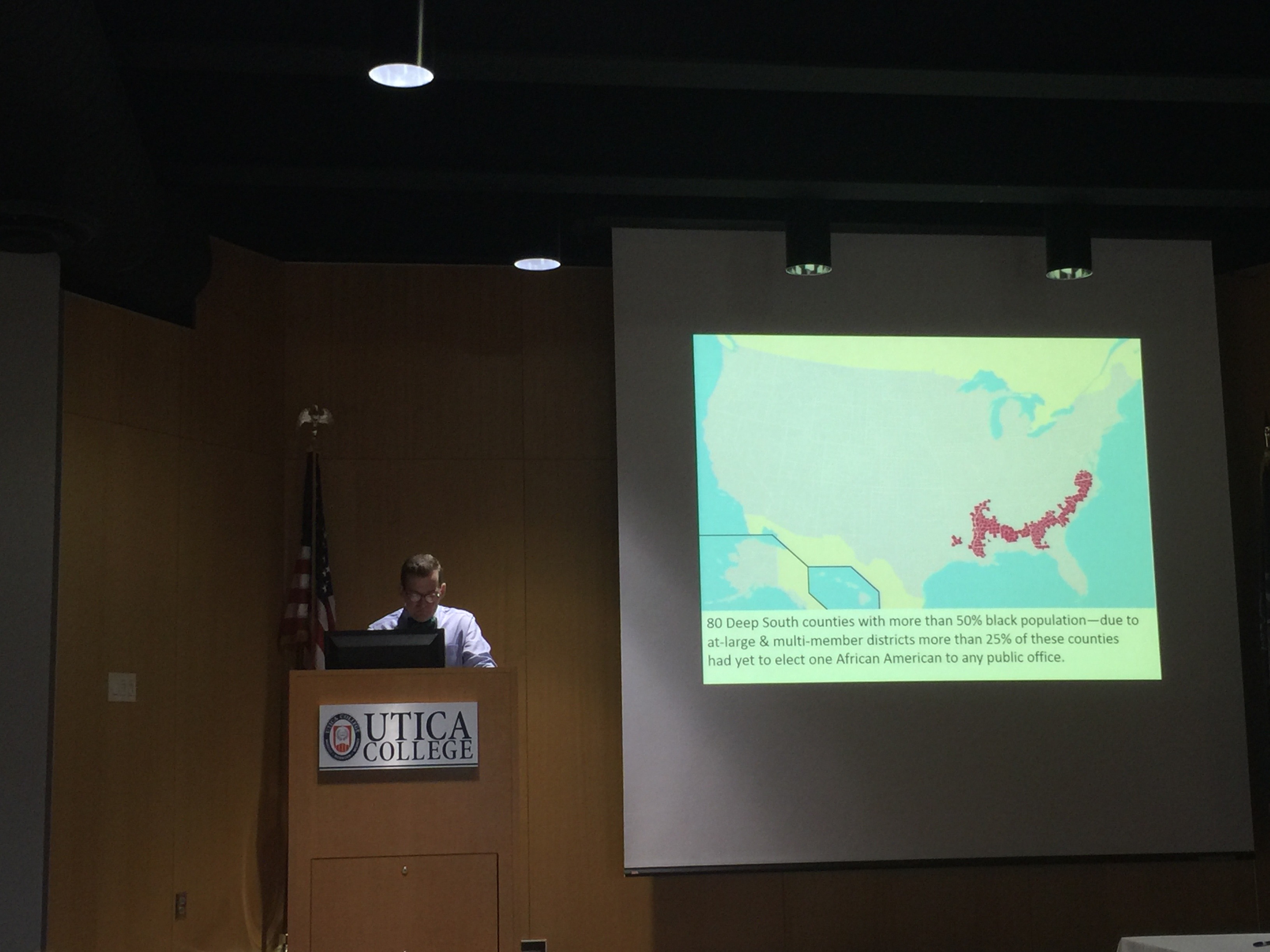
Jeffrey H. Bloodworth, PhD (Gannon University) speaks on the Civil
Rights Act of 1982 in his presentation: “Race Matters: The 1982 Voting
Rights Act & the Irony of Southern Realignment”
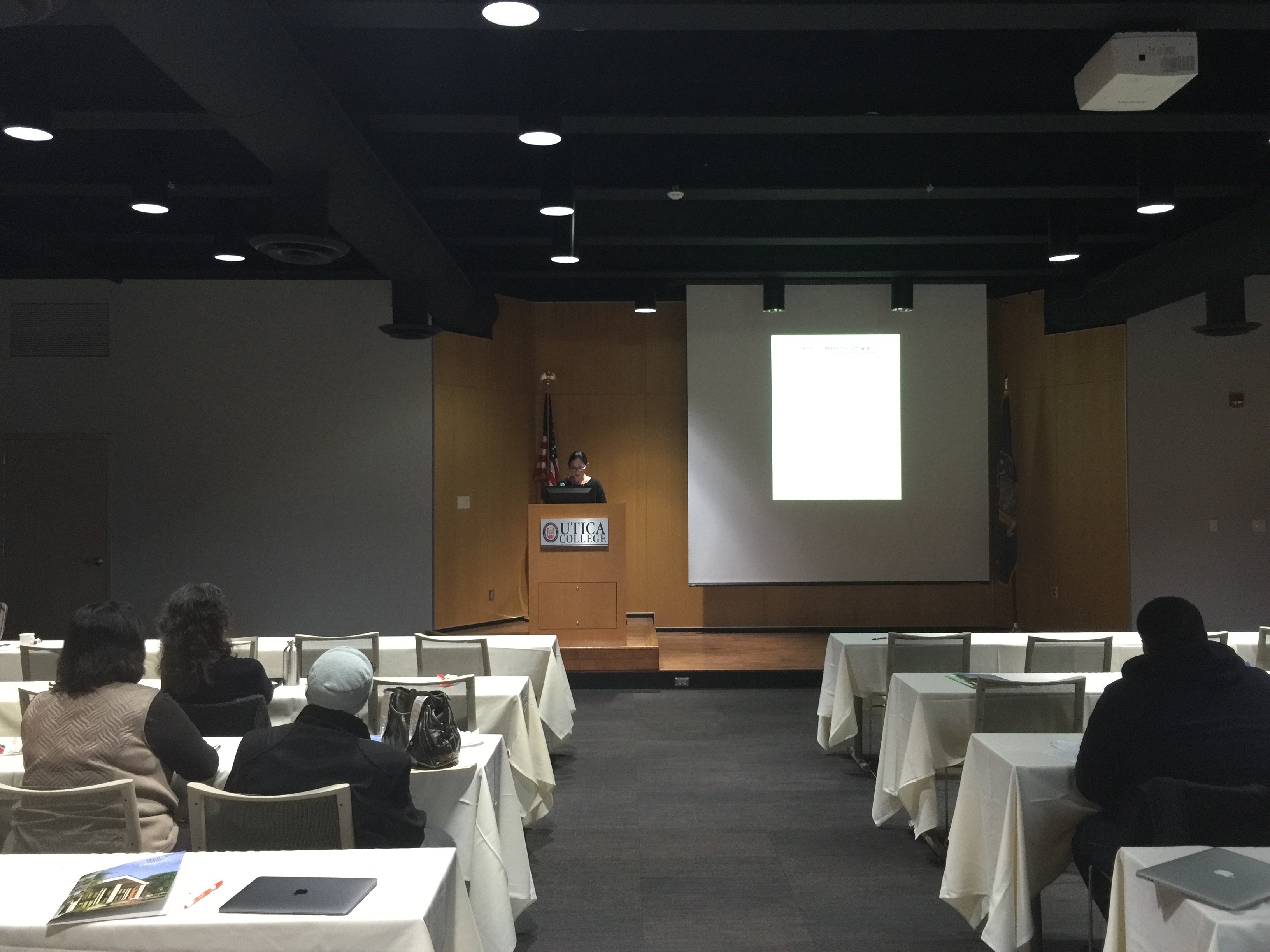
Meeghan Kane (Benedict College) presents her research in a talk titled,
“Working the Act: Grassroots Organizing After VRA in South Carolina”
The VRA @ 50 Symposium culminated with a panel discussion on the Voting Rights Act's legacy. Participants included: Kathryn M. Silva, PhD (Utica College), Robbie Dancy (Oneida County NAACP), and Anthony Van Der Meer (University of Massachusetts-Boston)
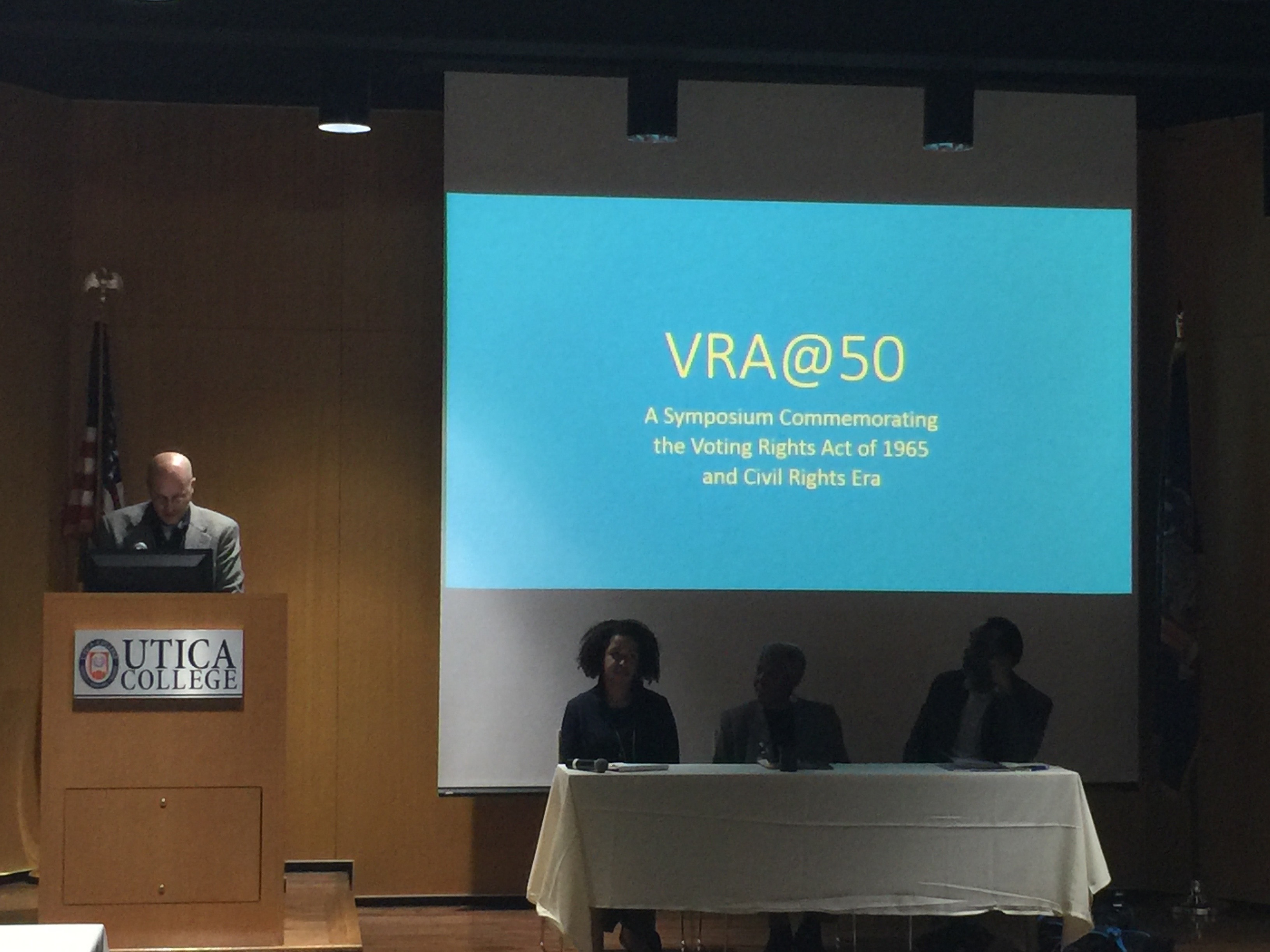
Director of the Utica College Center for Historical Research,
David Wittner, PhD, introduces the panelists
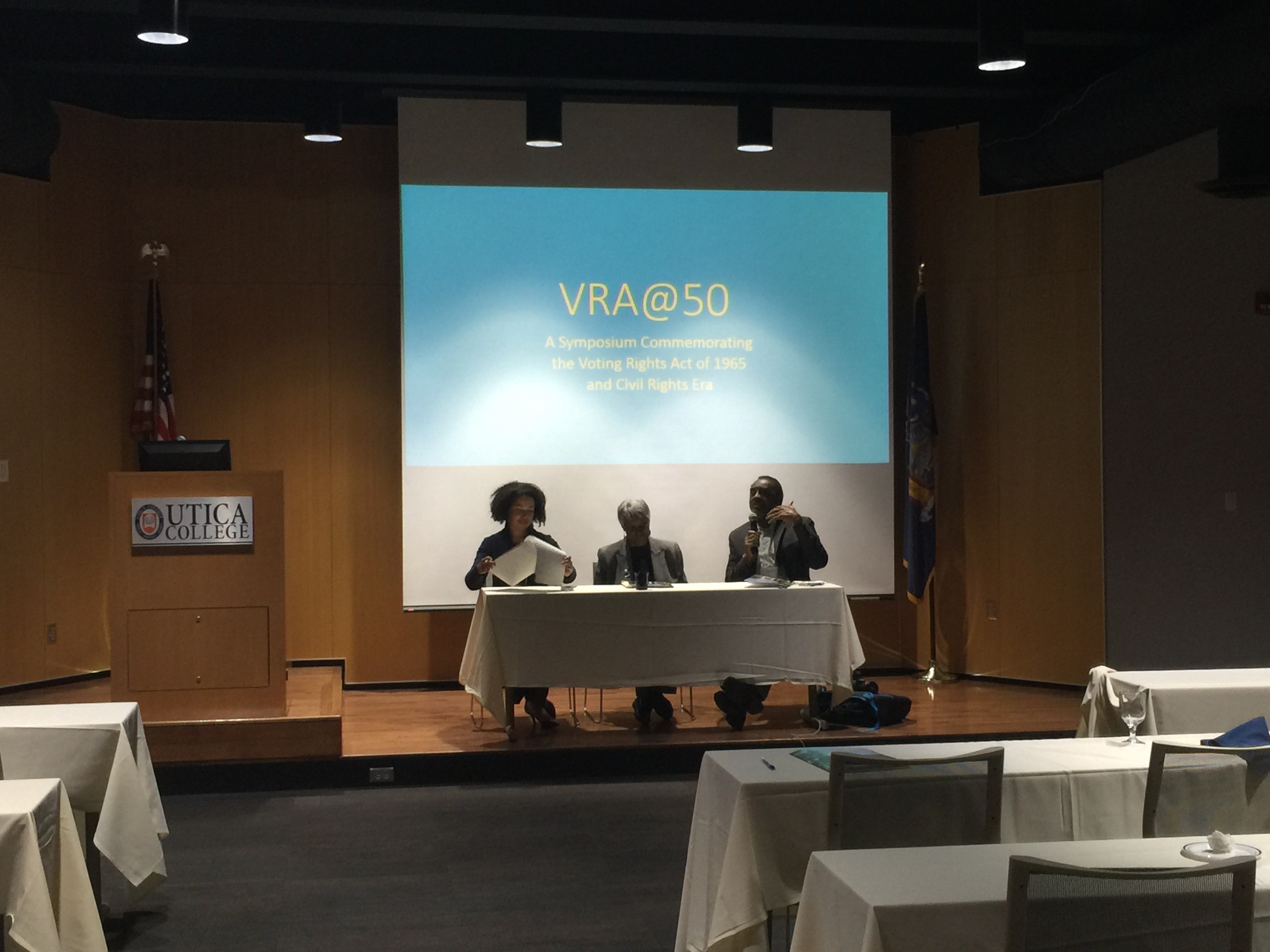
From Left to Right: Kathryn M. Silva, PhD (Utica College),
Robbie Dancy (Oneida County NAACP), and
Anthony Van Der Meer (University of Massachusetts-Boston)

